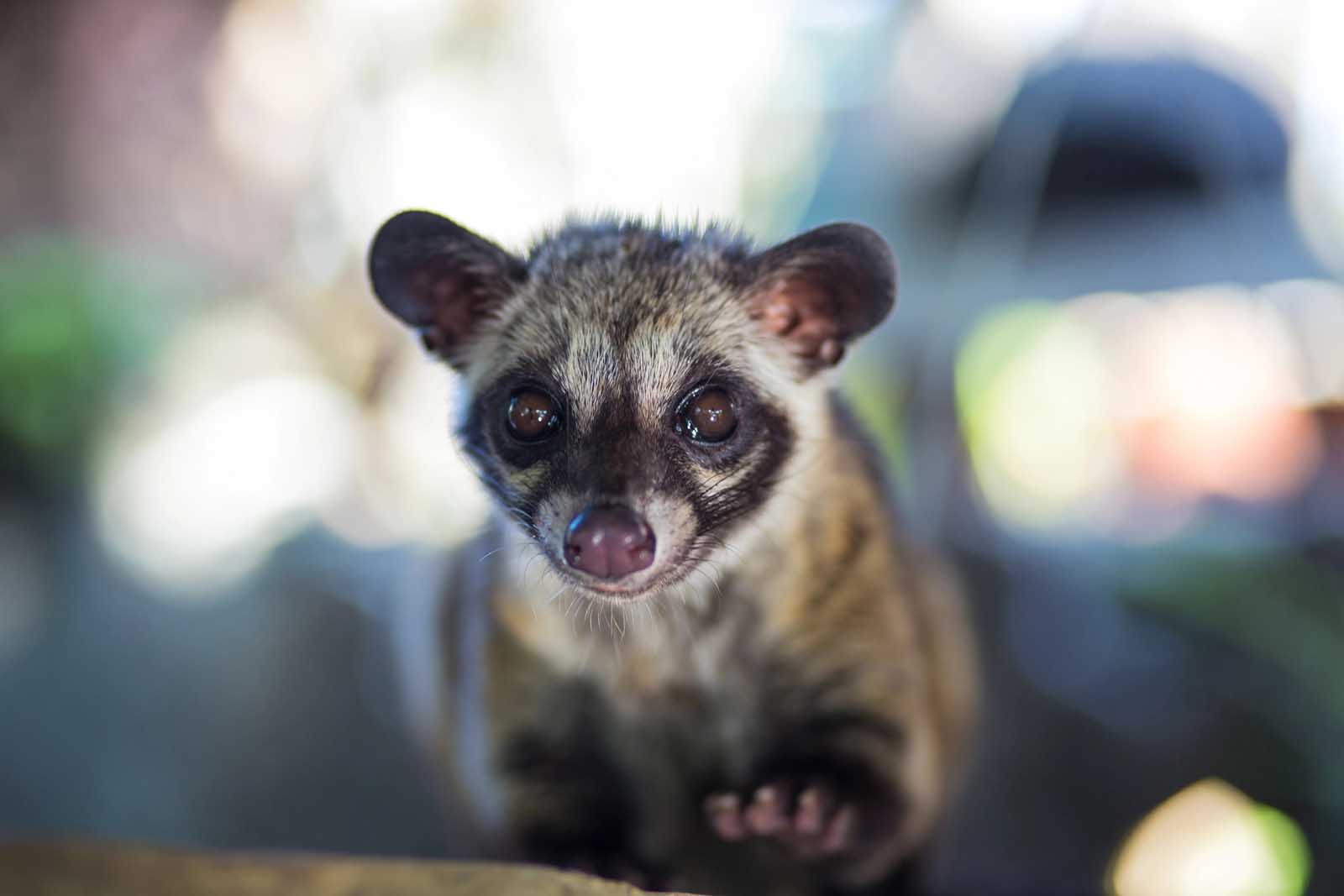In an unprecedented move that has caught the attention of environmentalists and animal rights activists such as Jane Goodall and Ian Redmond, The World Civet Project has launched the first-ever World Civet Day today, April 4, 2024. This groundbreaking initiative aims to raise awareness about the controversial production of Civet Coffee, also known as Kopi Luwak, and the significant impact it has on the small, cat-like animals called Civets in Asia.
What are Civets?
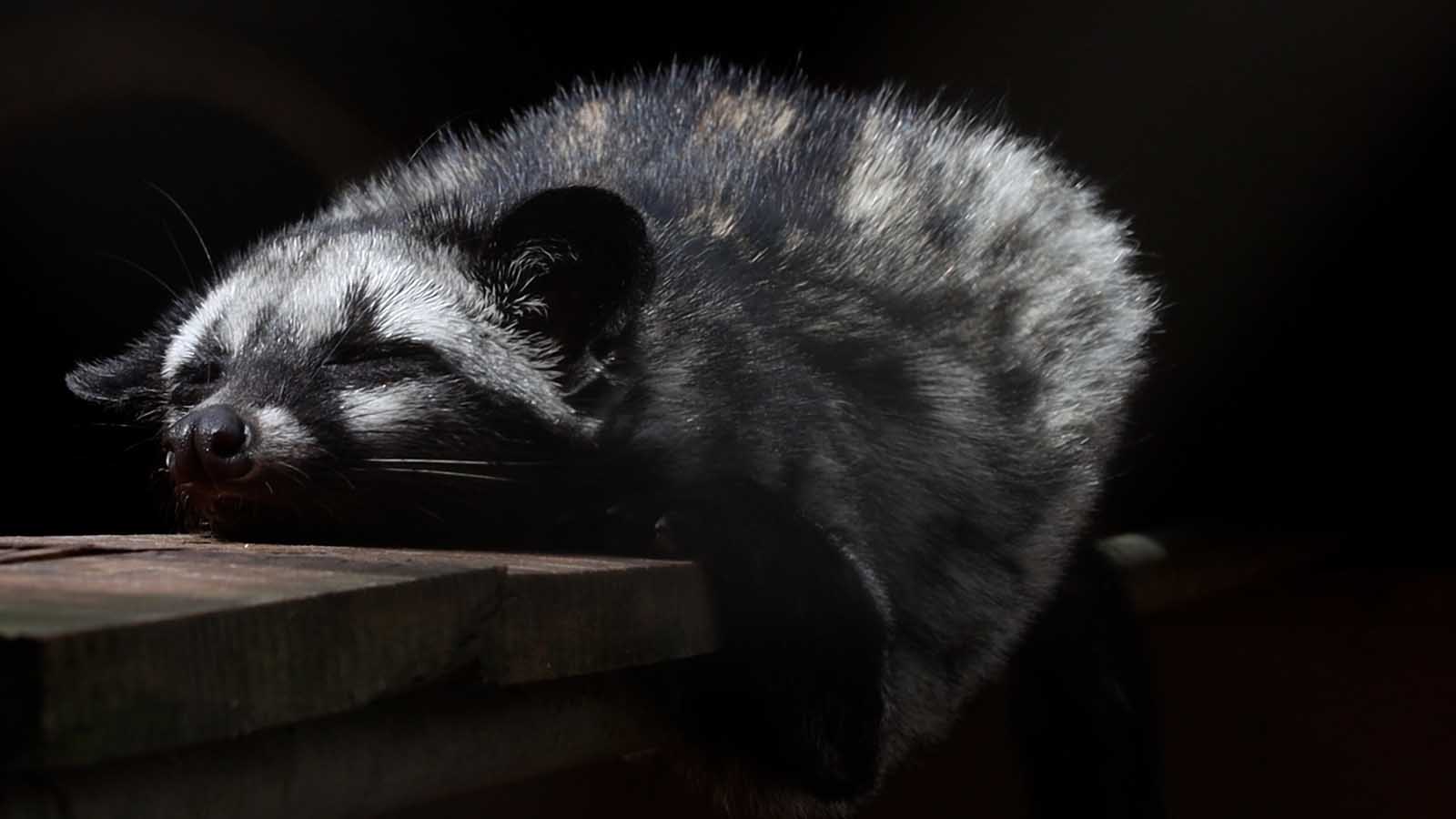
Civets are cute, shy and solitary. We have had the privilege of seeing them on night safaris in places such as Borneo and have seen first hand just how elusive they are. They have beautiful, spotted fur and big ears that pop up with curiosity when a light shines their way.
Civets lead lives that play an important part in their ecosystem. Their diet is omnivorous, consisting of fruits, berries, insects, and small vertebrates, which makes them vital for seed dispersal and controlling insect populations.
Unfortunately, the demand for civet coffee has significantly disrupted civets’ natural behaviors and habitats. Wild civets are captured with cruel methods such as snaring and trapping. They are then caged and displayed for tourists to take photos with. It is time to put an end to this.
The Most Expensive Coffee in the World Comes at a Price

Civet Coffee is renowned for being the most expensive coffee in the world, fetching prices as high as $100 per cup in some markets. The coffee’s unique production process involves the Asian Palm Civet, a creature native to the forests of South and Southeast Asia. The Civets eat the ripest coffee cherries, and after passing through their digestive system, the beans are collected from their feces. Enthusiasts of Kopi Luwak prize it for its supposed enhanced flavor profile, which is said to result from the natural fermentation process occurring in the Civet’s gut.
Civet Coffee from Rare to Reckless
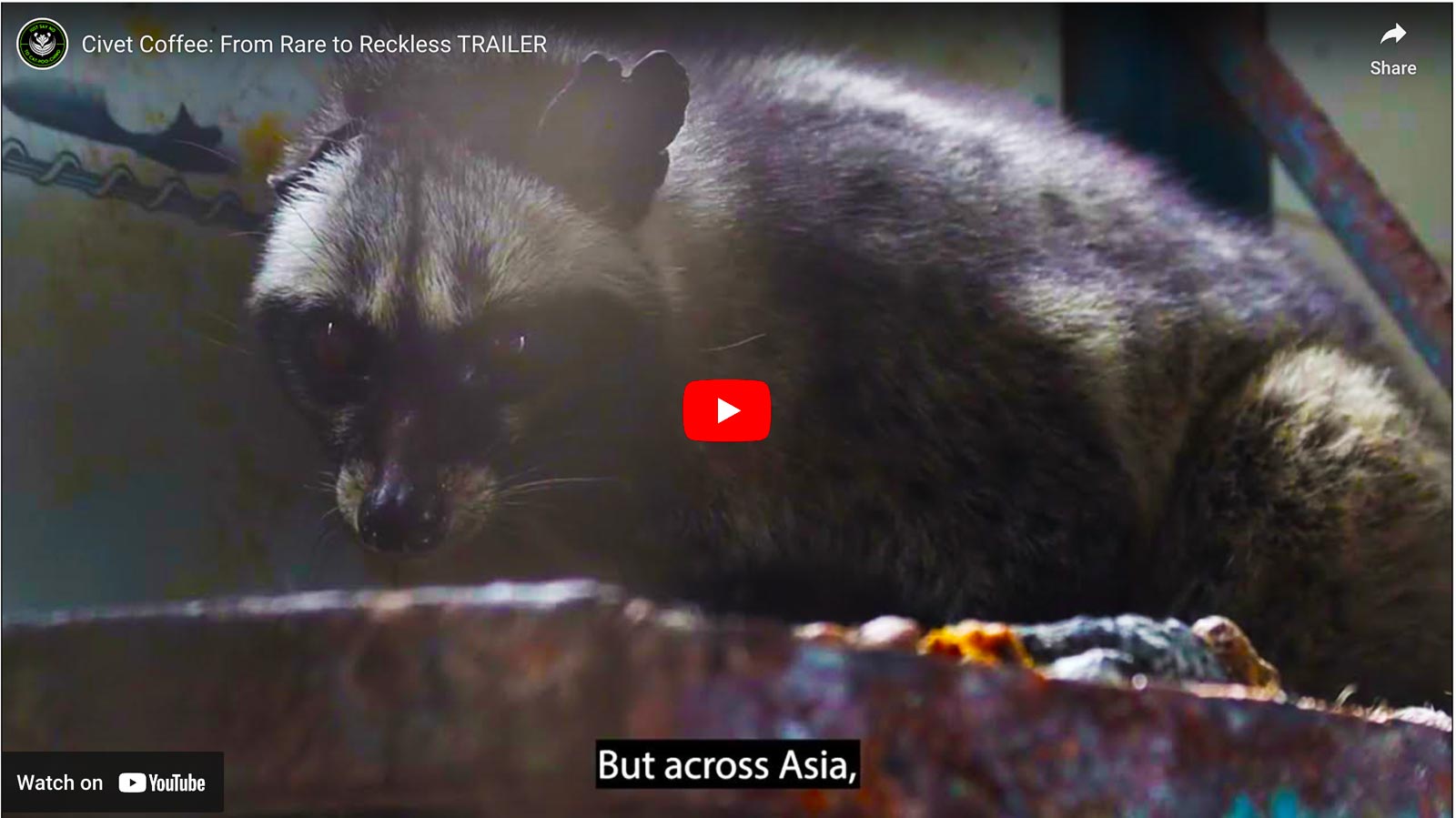
What was once a rare and naturally occurring process has turned into a lucrative business that exploits the Civets. Investigations and reports have revealed that many Civet farms engage in inhumane practices, keeping the animals in cramped, unsanitary cages and forcing them to consume a diet solely consisting of coffee cherries. This unnatural confinement and diet lead to not only inhumane suffering but significant health problems for the Civets, including malnutrition, stress, and a drastically reduced lifespan.
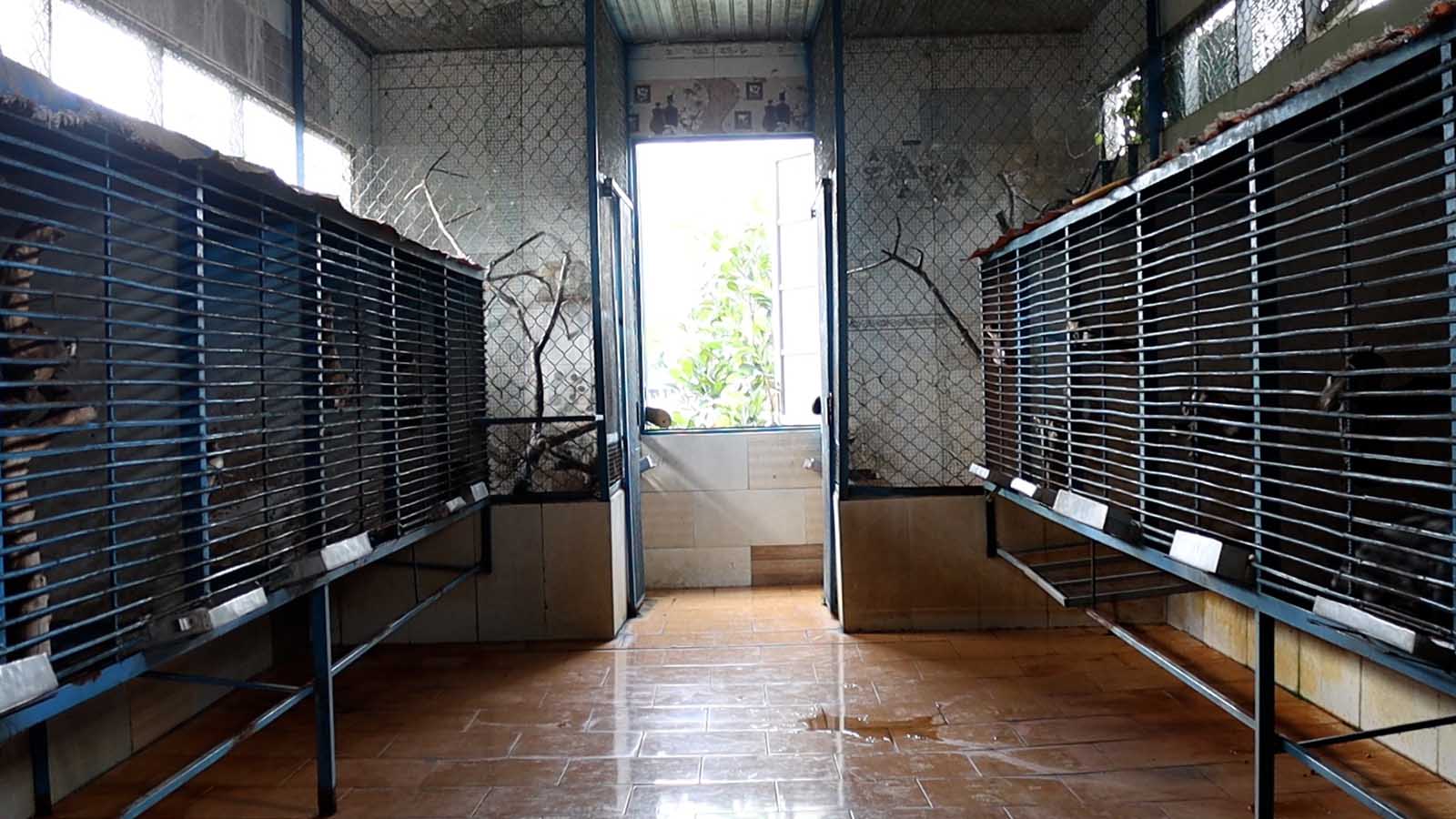
Sadly, tourists are supporting Civet Coffee production without knowing what is going on. It doesn’t help that TripAdvisor has attractions that encourage visitors to visit Civet Farms. That is why Jess Hooper, founder of the Civet Project, has started a petition to encourage TripAdvisor to issue animal welfare warnings on all Civet Coffee attractions. Sign the petition here. They are not following their own animal welfare policies. And just as we all came together to work towards ending elephant rides and swimming with dolphins, it is time to put an end to Civet coffee production.
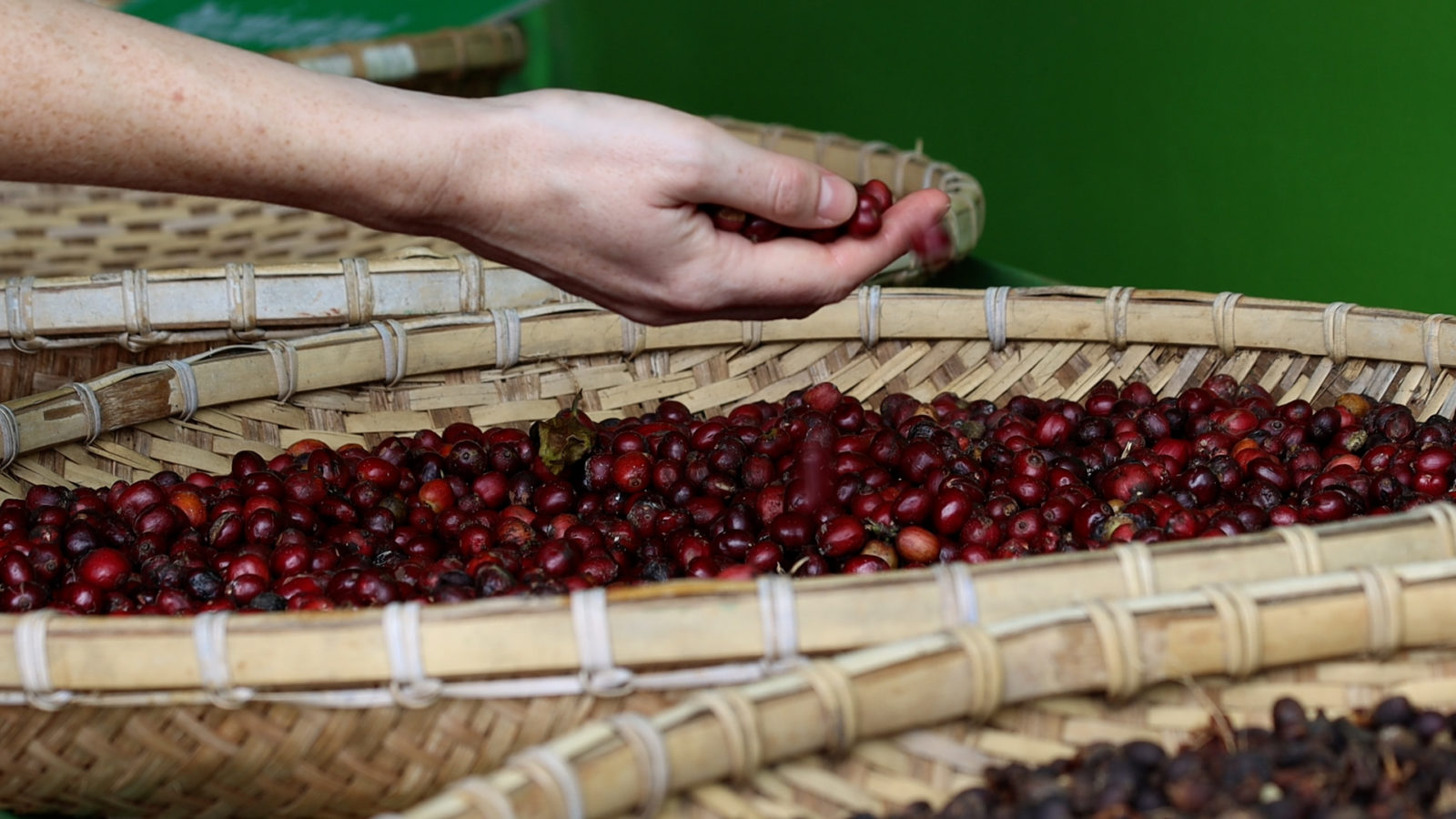
World Civet Day seeks to bring these issues to the forefront of public consciousness. The day is not only a call to action for the conservation of Civets and their natural habitats but also a plea for ethical consumerism. Organizers of World Civet Day advocate for the cessation of the use of caged Civets in the production of coffee and encourage the coffee industry and consumers to support sustainable and ethical practices.
World Civet Day
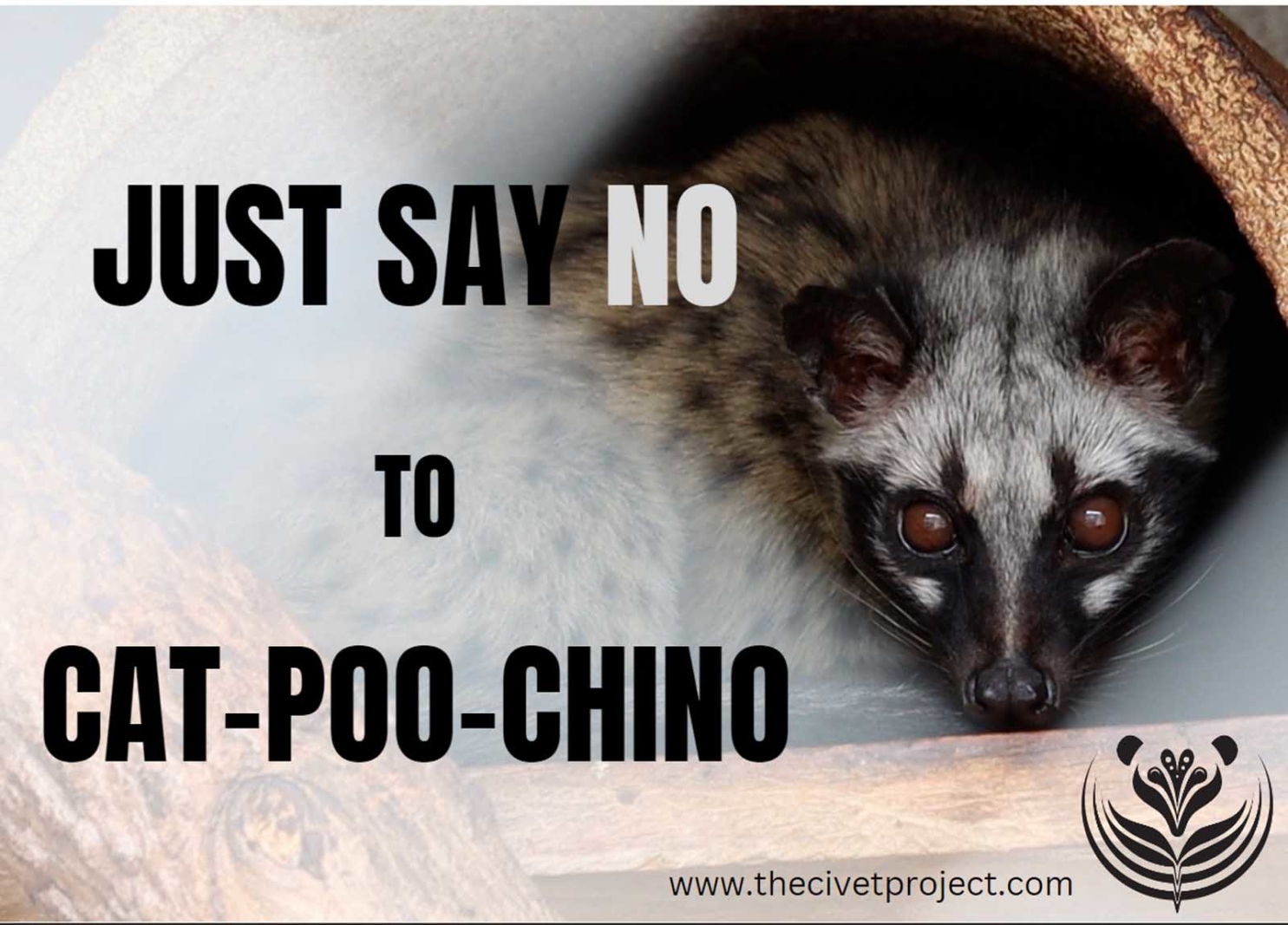
The introduction of World Civet Day represents a critical step toward addressing animal cruelty and promoting sustainable practices within the coffee industry. It reminds consumers that their choices can profoundly affect wildlife and the environment.
Do we really need to drink coffee that comes from cat pooh? Instead, let’s encourage the ultra rich to choose ethically sourced coffee to ensure that the luxury of enjoying a cup of coffee does not come at the expense of animal welfare.
As the world comes together to observe the inaugural World Civet Day, the message is clear: it’s time to rethink our relationship with coffee and the creatures that help produce it. Through awareness, education, and action, we can help end the abuse of Civets and pave the way for a more ethical and sustainable coffee industry.
World Civet Day, which will launch for the first time on April 4th 2024, will raise awareness of civet species. Visit the Civet Project’s website for more details. You can also find them on Facebook, Instagram, and LinkedIn.

